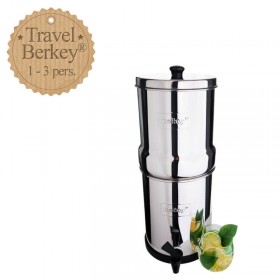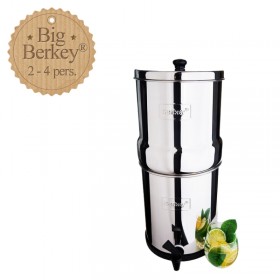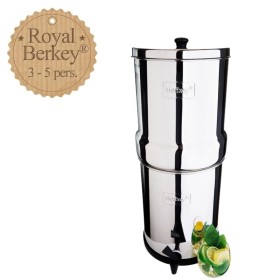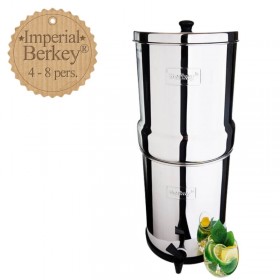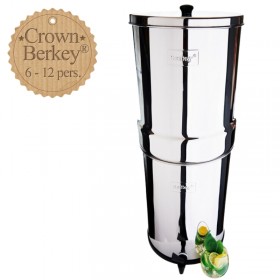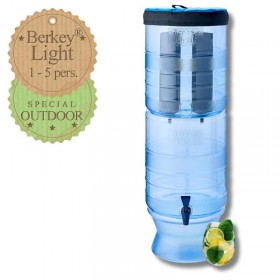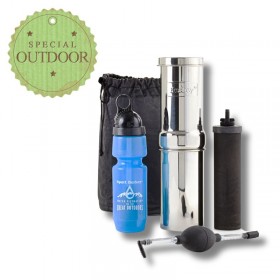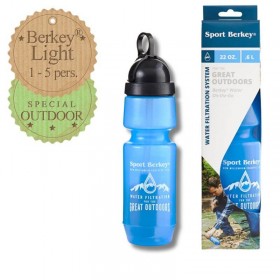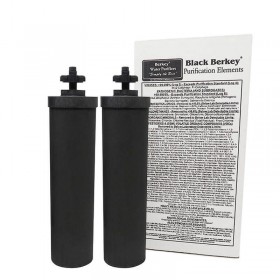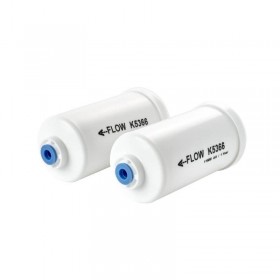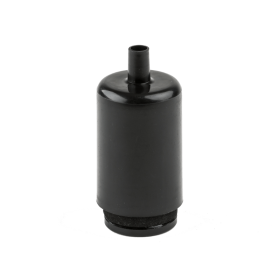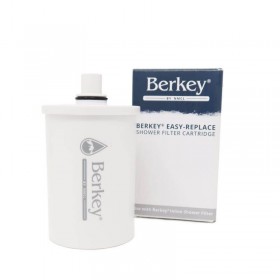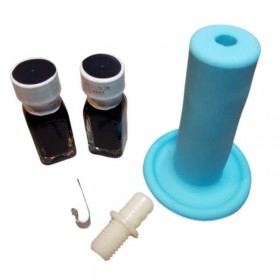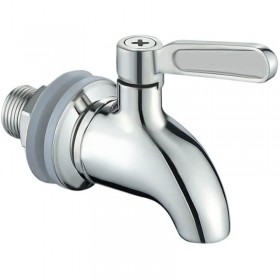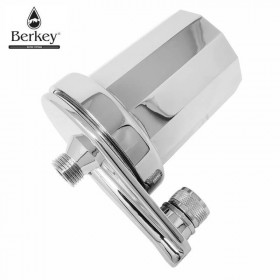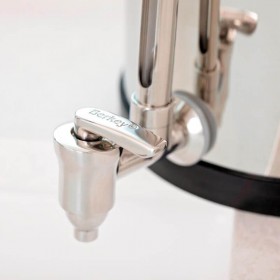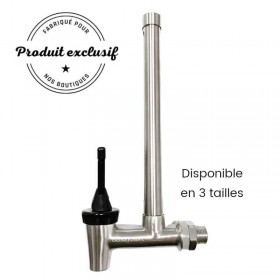Top 10 frequently asked questions
The lifespan of Berkey® filters has been calculated based on laboratory tests. It varies depending on the type of filter.
- For Black Berkey® filters, see this link: How long do Black Berkey® water filters last?
- For PF-2™ filters, see the following link: How long do Berkey PF-2™ water filters last?
- For shower filters, the filtration capacity is 113 400 liters of water, which is approximately 1890 showers.
The PF-2™ filters are optional placed under the Black Berkey® filters in the lower chamber and are used to filter arsenic, fluoride, and heavy metals in the water. Even though the Black Berkey® filters are effective against these pollutants, a high levels of these contaminants can saturate them before their normal lifespan. To determine if you need these filters in your system, check the analysis of the water you will be filtering.
More details on these filters can be found by consulting the product sheet.
Black Berkey® filters work "mechanically" by trapping contaminents in the millions of microscopic channels they contain, and also thanks to other layers, such as the ion exchange membrane and activated carbon. Solely for the mechanical part, the filtration fineness is estimated to be under 24 nanometers (0.024 microns), which corresponds to the size of some viruses efficiently filtered, such as MS2 or Fr Coliphage.
Due to industrial secret, it is impossible to provide the exact composition of the filters. However, what can be disclosed is detailed by following this link: What is the composition of Black Berkey® water filters?
Berkey® systems are not just simple water filters. They are efficient water purifiers that remove a significant number of pollutants, viruses, and bacteria. The list of these contaminants is published and available through analyses conducted by an independent laboratory following NSF protocol standards. These results are available to the public and can be found here: list of pollutants removed by Berkey® filters
When you want to filter water but composition is totally unidentified, and if do not have the choice (such as in an emergency situation), we recommend performing an initial analysis to ensure that there is no specific contamination that the Berkey® system may not be able to filter properly. This could be particular industrial pollution, resurfacing of old pollution, significant radioactive contamination, etc. The risk is indeed low, but the manufacturer Berkey® itself advises filtering the safest water possible or conducting tests beforehand. This does not take away from the exceptional performance of Berkey® filters and their actual ability to purify water. It is simply a precautionary procedure.
If you have or have not decided to perform preliminary water analysis, two points must be verified:
- Ensure that the seal is perfect from the first filtration. The wing nuts and blocking plugs must be sufficiently tightened so that the filtered water exits only through the ends of the threaded rods and not around the nuts or plugs. To do this, you must lift the upper chamber and visually check that everything is functioning properly.
- It is also recommended to perform the red dye test from the second filtration.
- None of the elements except the inside of the upper chamber and the top part of the filters should come into contact with contaminated water.
- Pay attention not to wash your hands with this water, if not you will contaminate any parts you touch: tap, filters, lower chamber.
- Under these conditions, Black Berkey® filters should not be primed with the contaminated water. They must be primed with the Black Berkey® Primer pump. This is a compulsory tool for these conditions.
- Throw away the first 2 filtrations.
You can also refer to this topic for more information on filtering rainwater.
Filtered water from Berkey® systems can be used for preparing baby bottles and as drinking water for infants. Contaminents have been removed from the water whilst minerals have been left. Additional precautions must be taken if the filtered water comes from untreated sources such as rainwater or a wells to ensure the system is fully operational and that the filtered water does not have any left over contaminents due to extremely high pollution levels or an unknown pollutant that may not be entirely removed from the filtered water.
More information on filtering water from a natural source can be found here.
Often used to remove limescale from water, different water softeners use different technique to do so. According to the technique used, the water may be drinkable or not. In general, if the water is certified drinkable by the manufacturer, it can be used with the Berkey® system.
For more details, follow this link: Can I use my Berkey® purification system with water from my water softener?
What conductivity can be expected from filtered with a Berkey® systemr? How do I interpret the results? Find the answers on the following link: How do I interpret the measurement of my filtered water using a conductivity meter or TDS reader?
When using hard water, meaning water with a high mineral content (TH > 30), Can the Berkey© system be used to reduce and combat limescale?
You can find the answer on the following link: Do Black Berkey® filters remove limescale?
Much has been written about the NSF standard, particulary regarding Berkey® systems. What is NSF, what does it refer to, and what about Berkey® purification systems? Find detailed answers on the follwing link: NSF standard and Berkey® filters

